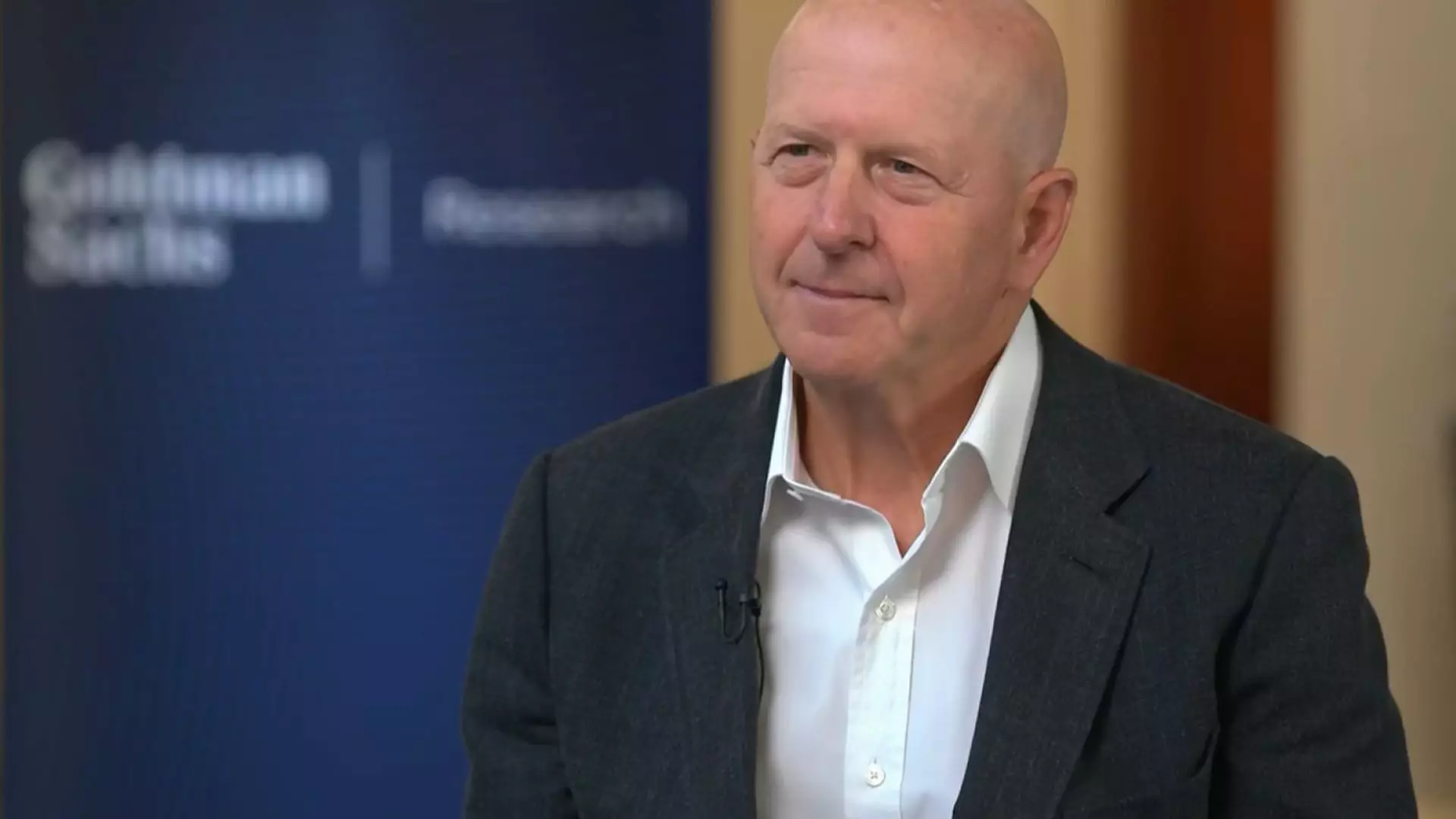Goldman Sachs’ recent quarterly performance stands as a resounding testament to both the bank’s resilience and the unpredictable nature of the financial landscape. While many analysts had projected conservative earnings, Goldman reported a substantial rise, outperforming predictions with earnings of $14.12 per share against an expected $12.35 and revenues hitting $15.06 billion compared to the anticipated $14.81 billion. This 15% increase in profit year-over-year raised eyebrows and sparked discourse about the implications of such volatility in the market.
The catalysts behind this surge were primarily equity trading and the tumultuous economic environment fueled by escalating political tensions, particularly surrounding former President Trump’s trade policies. Despite stable equity trading revenue growth, the broader implications of this financial performance beckon deeper scrutiny: is this merely a temporary respite in a volatile market, or does it signal a more enduring trend?
Equities Trading: An Ominous Conundrum
Goldman’s global banking and markets division saw a remarkable 10% increase in revenue to $10.71 billion, with equities trading revenue jumping an impressive 27% to $4.19 billion. Analysts were clearly caught off guard, as this exceeded market expectations by approximately $540 million. This phenomenon raises critical questions: Is this boom in equities trading a harbinger of long-term stability, or is it indicative of an unhealthy reliance on market volatility spurred by external political pressures?
Equity markets have proven to be a double-edged sword. On one hand, they provide immediate financial gains; on the other, they paint a troubling picture of a market reacting sharply to external strife and uncertainty. The significant jumps in trading revenue serve as both a boon and a potential warning to investors and bank squarely entrenched in the financial ecosystem, reminding us that today’s gains could rapidly morph into tomorrow’s losses if the political climate continues to destabilize.
A Mixed Bag: Weakness Lurking Beneath Success
While Goldman revels in the success of its equities division, looming challenges from other sectors within the bank are hard to ignore. Notably, the fixed income division experienced a mere 2% revenue rise from the previous year, falling short of the $4.56 billion estimate. Moreover, the investment banking fees saw an alarming 8% drop, hinting that advisory revenues are sensitive to the current economic climate. The firm’s asset and wealth management segment reported a 3% slump in revenue, exacerbating concerns about the stability of Goldman’s diversified revenue streams.
These worrying signs underlay a critical issue facing Goldman Sachs: the fragile nature of their earning sources. As the dynamics of trade relations shift due to political maneuverings, the sustainability of their recent earnings success could soon be called into question. Wall Street is known for adorning its successes with a veneer of optimism, but underneath lies the constant threat of economic disarray.
Leadership in Uncertain Waters
Goldman CEO David Solomon has been vocal amidst these turbulent times, remarking on the current, “markedly different operating environment” and emphasizing the firm’s commitment to client support. However, Solomon’s assertions come from a place of necessity rather than pure confidence. The conversations he has with corporate clients during these uncertain times will be pivotal—are they seeking to navigate these troubled waters, or will they withdraw altogether?
Solomon’s leadership is under immense scrutiny, especially amid peers like JPMorgan Chase and Morgan Stanley, which have also reported impressive earnings growth amidst the market’s chaos. The question looms: how much longer can Goldman Sachs maintain its upward trajectory before the weight of external factors overwhelms its operations?
As we observe the whirlwind reactions in financial markets, Goldman’s mixed results reveal more than mere numbers. They spotlight a bank attempting to thrustrate turbulent waters while acknowledging the perilous undertones of the political arena. In a world governed increasingly by fluctuating policies and trade tensions, the resilience of Goldman Sachs may well be tested like never before in the months and years to come.


Leave a Reply